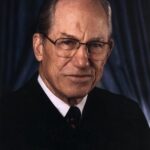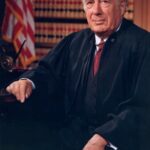JUSTICE O'CONNOR delivered the opinion of the Court.
This case requires us to decide whether allegedly obscene magazines purchased by undercover officers shortly before the warrantless arrest of a salesclerk must be excluded from evidence at the clerk's subsequent trial for distribution of obscene materials. Following a jury trial in the Circuit Court of Prince George's County, Maryland, respondent was convicted of distribution of obscene materials in violation of Md.Ann.Code, Art. 27, § 418 (1982). The Maryland Court of Special Appeals reversed the conviction and ordered the charges dismissed on the ground that the magazines were improperly admitted in evidence. 57 Md.App. 705, 471 A.2d 1090 (1984). The Maryland Court of Appeals denied certiorari. 300 Md. 795, 481 A.2d 240 (1984). We granted certiorari, 469 U.S. 1156 (1985), to resolve a conflict among the state courts on the question whether a purchase of allegedly obscene matter by an undercover police officer constitutes a seizure under the Fourth Amendment. Finding that it does not, we reverse.
I
On May 6, 1981, three Prince George's County police detectives went to the Silver News, Inc., an adult bookstore in Hyattsville, Maryland, as part of a police investigation of adult bookstores in the area. One of the detectives, who was not in uniform, entered the store, browsed for several minutes, and purchased two magazines from a clerk, Baxter Macon, with a marked $50 bill. The detective left the store and showed the two magazines to his fellow officers who were waiting nearby. Together they concluded that the magazines were obscene under the criteria previously used by them in warrant applications. The detectives returned to the store, arrested respondent Macon, who was the only attendant in the store, and retrieved from the cash register the $50 bill that had been used to make the purchase. The officers neglected to return the change received at the time of the purchase. Respondent escorted the remaining customers out and closed the bookstore before leaving with the detectives.
Prior to trial, Macon moved to suppress the magazines purchased by the officers and the $50 bill used to make the purchase. App. 21. The trial judge denied the motion on the grounds that the purchase was not a seizure within the meaning of the Fourth Amendment, and that the warrantless arrest was lawful. Id. at 52. The magazines, but not the $50 bill, were subsequently introduced in evidence at trial. The jury found respondent guilty of distributing obscene materials. Respondent appealed, contending that a prior judicial determination of probable cause to believe the matter distributed was obscene was required to sustain a seizure and an arrest on charges related to obscenity. Absent such a determination, respondent argued, the allegedly obscene materials must be suppressed and the charges must be dismissed. Respondent did not challenge the jury's finding that the magazines were obscene.
The Maryland Court of Special Appeals agreed that a warrant is required both to seize allegedly obscene materials and to arrest the distributor in order to provide a procedural safeguard for the First Amendment freedom of expression. 57 Md.App. at 710, 471 A.2d at 1092. In cases involving First Amendment rights, the court reasoned, Fourth Amendment safeguards, including suppression of material acquired in connection with a warrantless arrest, must be applied more stringently. Ibid. The court determined that the purchase of the magazines was a "constructive" seizure, and that the proper remedy was to exclude the magazines from evidence at the subsequent trial. Id. at 716, 471 A.2d at 1096. Alternatively, the court held that the warrantless arrest of respondent on obscenity charges required the exclusion of the publications from evidence. Id. at 719, 471 A.2d at 1097. The court accordingly reversed the conviction and ordered that the charges be dismissed because without the magazines the evidence was insufficient to sustain a conviction. Ibid.
By holding that the purchase constituted a seizure within the meaning of the Fourth Amendment, the Maryland Court of Special Appeals rejected the position taken by the majority of state courts that have considered the issue. In evaluating the undercover purchase of allegedly obscene materials, most state courts have treated as self-evident the proposition that a purchase by an undercover officer is not a seizure, regardless of whether the funds used to make the purchase are later retrieved as evidence. See, e.g., Baird v. State, 12 Ark. App. 71, 671 S.W.2d 191 (1984) (en banc); Wood v. State, 144 Ga.App. 236, 240 S.E.2d 743 (1977), cert. denied, 439 U.S. 899 (1978); People v. Ridens, 51 Ill.2d 410, 282 N.E.2d 691 (1972), vacated and remanded on other grounds, 413 U.S. 912 (1973); State v. Welke, 298 Minn. 402, 216 N.W.2d 641 (1974); State v. Perry, 567 S.W.2d 380 (Mo.App.1978); State v. Dornblaser, 26 Ohio Misc. 29, 267 N.E.2d 434 (1971); Cherokee News & Arcade, Inc. v. State, 533 P.2d 624 (Okla.Crim.App.1974). But see State v. Fyama, 64 Haw. 109, 637 P.2d 1095 (1981) (reaching the contrary conclusion).
For the reasons set forth below, we conclude that the officer's entry into the bookstore and later examination of materials offered for sale there did not constitute a search, and that the purchase of two magazines did not effect a seizure. We do not decide whether a warrant is required to arrest a suspect on obscenity-related charges, because the magazines at issue were not the product of the warrantless arrest. Because we hold that the magazines were properly admitted in evidence at trial, we also do not address respondent's contention that the Double Jeopardy Clause bars retrial.
II
The central issue presented is whether the magazines purchased by the undercover detectives before respondent's arrest must be suppressed. If the publications were obtained by means of an unreasonable search or seizure, or were the fruits of an unlawful arrest, the Fourth Amendment requires their exclusion from evidence. If, however, the evidence is not traceable to any Fourth Amendment violation, exclusion is unwarranted. See United States v. Crews, 445 U. S. 463, 445 U. S. 472 (1980).
A
The First Amendment imposes special constraints on searches for and seizures of presumptively protected material, Lo-Ji Sales, Inc. v. New York, 442 U. S. 319, 442 U. S. 326, n. 5 (1979), and requires that the Fourth Amendment be applied with "scrupulous exactitude" in such circumstances. Stanford v. Texas, 379 U. S. 476, 379 U. S. 485 (1965). Consequently, the Court has imposed particularized rules applicable to searches for and seizures of allegedly obscene films, books, and papers. See, e.g., Roaden v. Kentucky, 413 U. S. 496, 413 U. S. 497 (1973) ("seizure of allegedly obscene material, contemporaneous with and as an incident to an arrest for the public exhibition of such material… may [not] be accomplished without a warrant"); Marcus v. Search Warrant, 367 U. S. 717 (1961) (warrant to seize allegedly obscene magazines must be particularized and may not issue merely on officer's conclusory assertion). Although we have not previously had an occasion to analyze the question whether a purchase of obscene material is properly classified as a seizure, some prior cases have involved seizures that followed bona fide undercover purchases. See, e.g., Lo-Ji Sales, Inc. v. New York, supra; Marcus v. Search Warrant, supra. In those cases, the Court did not address the exclusion of the purchased materials, but only of the materials obtained through mass seizures conducted pursuant to unconstitutional open-ended warrants. Absent some action taken by government agents that can properly be classified as a "search" or a "seizure," the Fourth Amendment rules designed to safeguard First Amendment freedoms do not apply. Cf. Lo-Ji Sales, Inc. v. New York, supra, at 442 U. S. 326, n. 5; Roaden v. Kentucky, supra, at 413 U. S. 505 (sheriff seized a film from a commercial theater currently screening it).
A search occurs when "an expectation of privacy that society is prepared to consider reasonable is infringed." United States v. Jacobsen, 466 U. S. 109, 466 U. S. 113 (1984). Here, respondent did not have any reasonable expectation of privacy in areas of the store where the public was invited to enter and to transact business. Cf. United States v. Knotts, 460 U. S. 276, 460 U. S. 281 -282 (1983). The mere expectation that the possibly illegal nature of a product will not come to the attention of the authorities, whether because a customer will not complain or because undercover officers will not transact business with the store, is not one that society is prepared to recognize as reasonable. Cf. United States v. Jacobsen, supra, at 466 U. S. 122 -123, n. 22. The officer's action in entering the bookstore and examining the wares that were intentionally exposed to all who frequent the place of business did not infringe a legitimate expectation of privacy, and hence did not constitute a search within the meaning of the Fourth Amendment. See Katz v. United States, 389 U. S. 347, 389 U. S. 351 (1967) ("What a person knowingly exposes to the public… is not a subject of Fourth Amendment protection").
Nor was the subsequent purchase a seizure within the meaning of the Fourth Amendment. A seizure occurs when "there is some meaningful interference with an individual's possessory interests" in the property seized. United States v. Jacobsen, supra, at 466 U. S. 113. Here, respondent voluntarily transferred any possessory interest he may have had in the magazines to the purchaser upon the receipt of the funds. Cf. Lewis v. United States, 385 U. S. 206, 385 U. S. 210 (1966). Thereafter, whatever possessory interest the seller had was in the funds, not the magazines. At the time of the sale the officer did not "interfere" with any interest of the seller; he took only that which was intended as a necessary part of the exchange. See id. at 385 U. S. 211.
The use of undercover officers is essential to the enforcement of vice laws. Id. at 385 U. S. 210, n. 6. An undercover officer does not violate the Fourth Amendment merely by accepting an offer to do business that is freely made to the public.
A government agent, in the same manner as a private person, may accept an invitation to do business and may enter upon the premises for the very purposes contemplated by the occupant.
Id. at 385 U. S. 211 ; cf. Lo-Ji Sales, Inc. v. New York, supra, at 442 U. S. 329. Nor does the First Amendment suggest a different conclusion in this case. Although a police officer may not engage in a "wholesale searc[h] and seizur[e]" in these circumstances, Lo-Ji Sales, Inc. v. New York, supra, at 442 U. S. 329, nothing in our cases renders invalid under the Fourth Amendment or the First Amendment the purchase as here by the police of a few of a large number of magazines and other materials offered for sale. The risk of prior restraint, which is the underlying basis for the special Fourth Amendment protections accorded searches for and seizures of First Amendment materials, does not come into play in such cases, and the purchase is analogous to purchases of other unlawful substances previously found not to violate the Fourth Amendment. See Lewis v. United States, supra, at 385 U. S. 210 (purchase of narcotics).
Notwithstanding that the magazines were obtained by a purchaser, respondent argues that the bona fide nature of the purchase evaporated when the officers later seized the marked $50 bill and failed to return the change. Brief for Respondent 10. When the officer subjectively intends to retrieve the money while retaining the magazines, respondent maintains, the purchase is tantamount to a warrantless seizure. Id. at 11. This argument cannot withstand scrutiny. Whether a Fourth Amendment violation has occurred "turns on an objective assessment of the officer's actions in light of the facts and circumstances confronting him at the time," Scott v. United States, 436 U. S. 128, 436 U. S. 136 (1978), and not on the officer's actual state of mind at the time the challenged action was taken. Id. at 436 U. S. 138 and 436 U. S. 139, n. 13. Objectively viewed, the transaction was a sale in the ordinary course of business. The sale is not retrospectively transformed into a warrantless seizure by virtue of the officer's subjective intent to retrieve the purchase money to use as evidence. Assuming, arguendo, that the retrieval of the money incident to the arrest was wrongful, the proper remedy is restitution or suppression of the $50 bill as evidence of the purchase, not exclusion from evidence of the previously purchased magazines.
B
The question remains whether respondent's warrantless arrest after the purchase of the magazines requires their exclusion at trial. Again, assuming, arguendo, that the warrantless arrest was an unreasonable seizure in violation of the Fourth Amendment -a question we do not decide -it yielded nothing of evidentiary value that was not already in the lawful possession of the police.
The exclusionary rule enjoins the Government from benefiting from evidence it has unlawfully obtained; it does not reach backward to taint information that was in official hands prior to any illegality.
United States v. Crews, 445 U.S. at 445 U. S. 475 (opinion of BRENNAN, J., joined by Stewart, and STEVENS, JJ.). Here, the magazines were in police possession before the arrest, and the $50 bill, the only fruit of the arrest, was not introduced in evidence. We leave to another day the question whether the Fourth Amendment prohibits a warrantless arrest for the state law misdemeanor of distribution of obscene materials.
Because the undercover agents did not obtain possession of the allegedly obscene magazines by means of an unreasonable search or seizure and the magazines were not the fruit of an arrest, lawful or otherwise, the magazines were properly admitted in evidence at respondent's trial for distribution of obscene materials. The judgment of the Maryland Court of Special Appeals is reversed.
It is so ordered.






